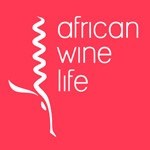Today, passionate world wine consumers read the same articles and taste the same wines. A wine lover in Italy can sip on the same Cabernet Sauvignon as another in Iceland; and better yet, they can go online and have a conversation about it.
At the forefront of this era sit millennials (individuals between the ages of 18 and 34). This age group represents the new face of ‘wine media’ and ‘wine journalism’. Millennials seem to be one of the most judged generations of all time. Often deemed as lazy, live in the moment, “I want it and I want it now”; millennials are, whether we like it or not, on the fast track to dominating and controlling the wine market with their opinions, lifestyle and ideas. According to fortune.com, millennials are now responsible for over 41% of world wine consumption and have officially surpassed the baby boomers.

Millennials live life online. They have grown up with technology and trust it more than any other generation up to date. Millennials are an emotionally conscious and invested generation; they want to connect with a wine brand and demand authenticity. Social issues such as sustainability and empowerment are important to the millennial consumer. Purchasing choice is based more on the story that exists behind the label, rather than the flashy advert.
Wine journalism and media today means less paper, more online articles, less big money advertising and more monetary investment in ‘influencers’ and organic platforms. These days, thanks to the internet, and more particularly, social media; the umbrella labelled as ‘wine media’ seems to welcome anyone who wants to be there to stand underneath it. From the passive, casual wine consumer – to the dedicated oenophile, anyone can go online, start a blog, gain some followers and talk about wine. Some of the blogs and sites coming out today are blowing well-known wine critic’s websites out of the water. They are more relatable, navigate-able and just better looking. The tables are quickly turning, and these consumers and connoisseurs, whether formally educated in the subject of wine or not, are moving to a place of control.
Robert Parker, a member of the baby-boomer wine-consumer generation is an American-born, self-taught wine write. His palate is worth its weight in gold. Considered the most influential wine critic on the globe, Parker created the 100-point scale (also known as Parker points). He is said to taste and review up to 10,000 wines a year. Some believe Parker has completely changed the history of wine and they are probably right; with a single sip, he can cause a producer’s vintage to either soar in sales or plummet to its untimely death.
Is this fair or just plain disturbing? No matter how ‘accurate’, how can a single palate determine a wine producer’s fate? After all, this is a wine producer who has poured their heart and soul into a vintage.
However, what once was, is no longer ringing true today. The millennial generation is silently pushing Robert Parker and his reviews out of the limelight and new individuals are stepping in from the shadows. Days of the ‘one palate determines all’ are numbered. Educated millennial wine consumers still follow and listen to Robert Parker and his points, however, there is now an equal focus on following smaller, more relatable accounts and newsfeeds. Young consumers prefer to read wine reviews from everyday people that they feel like they know and can relate to. A great example is American, Marissa Ross (check out her instagram @marissaross and website www.marissaaross.com).
Thanks to this generation of ‘self-confident, outspoken individuals’, wine consumers of all ages are starting to trust their own palate, engage and support smaller producers and are more conscious about what’s in their glass. The wine world is becoming more inclusive and less elite. Millennial consumers are showing more confidence in their wine purchases, something we haven’t really seen before. With or without the points, wine drinking millennials are going to tell you all about what they’re drinking, regardless of whether they hold an oenology degree or a WSET certification.

We live in a democratic age where it’s easier to voice our opinions. The internet now serves host to thousands of tasting notes written on wines from all over the world by average wine consumers.
What are your thoughts? Does the flood of online amateur tasters, influencers and writers impact the industry negatively or positively? Does the weakening of wine elitism mean more diverse, relatable palates…or just a new affinity to mass amounts of bulk Sauvignon Blanc?
However you look at it, there’s no going back; the world of wine is changing.
Brands and baby-boomers beware…
You’ve either got to fit in, or…well you know.
Cheers for now,
Katie
Read more of Canadian Katie Truscott's African Wine Life adventures here.
Follow her on Social Media Instagram I Twitter I Facebook
